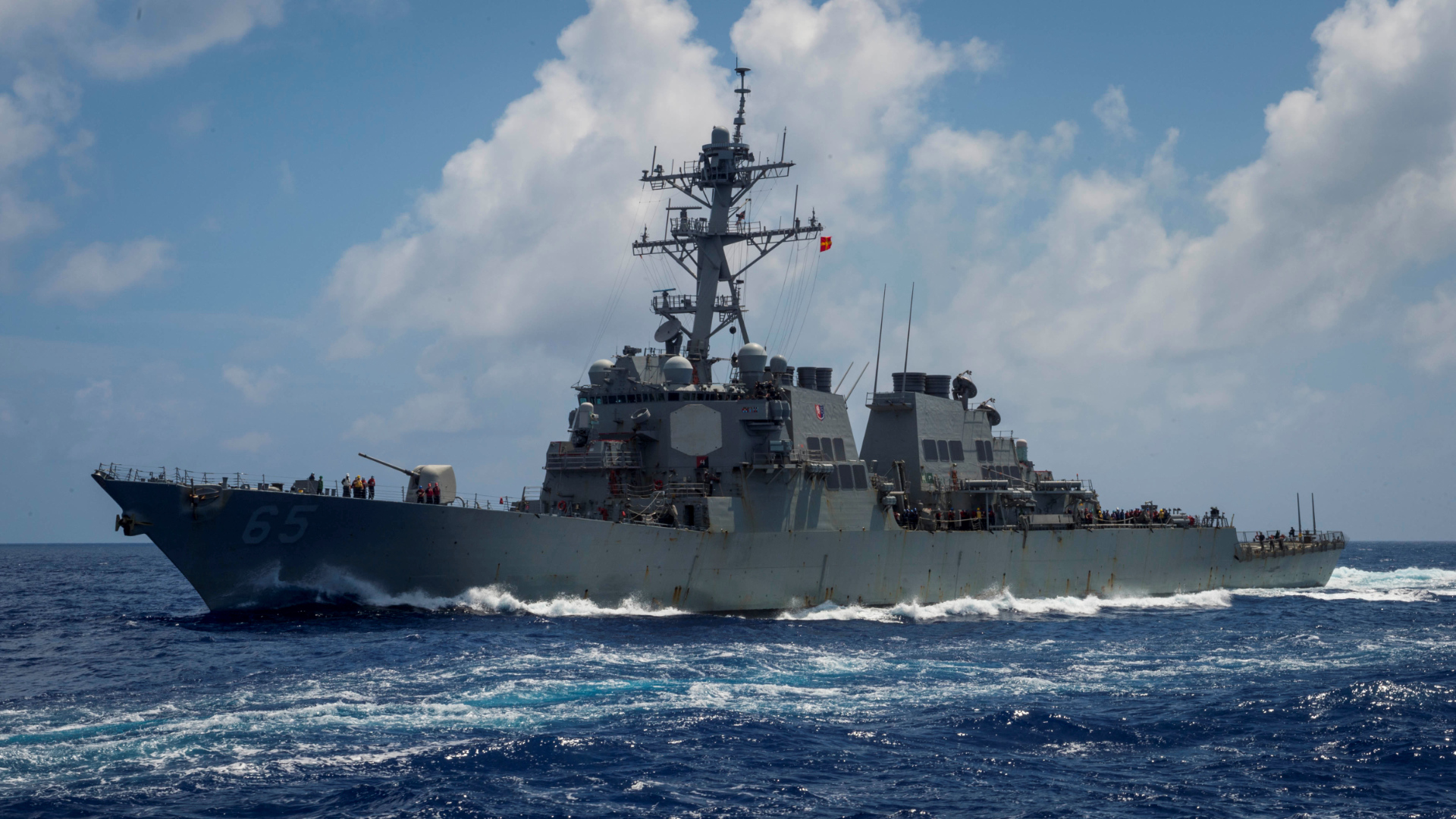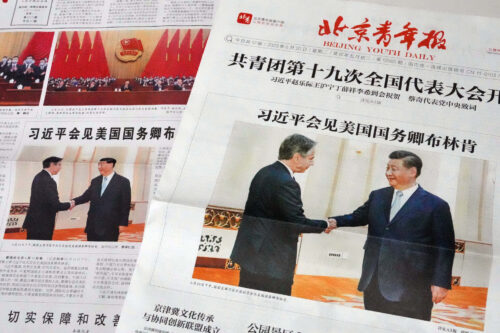U.S. warship ‘sent away with a warning’ by China as Biden backs Trump policy on South China Sea
The Biden administration marked the fifth anniversary of a landmark maritime dispute arbitration case by affirming the Trump administration’s policy to actively support the maritime claims of five Southeast Asian states over China.

Today is the fifth anniversary of the Philippines v. China international arbitral tribunal case, in which a panel of five judges unanimously agreed that nearly all of China’s territorial claims in the South China Sea are invalid. The arbitral award, however, had no enforcement mechanism, and China immediately dismissed the ruling as a “waste of paper” and has ignored it since.
The Biden administration marked the anniversary by affirming the Trump administration’s policy, announced last year by the State Department under Mike Pompeo, that shed any pretense of U.S. neutrality on particular disputes in the South China Sea in favor of active support for the Philippines and four other states’ claims.
- “Nowhere is the rules-based maritime order under greater threat than in the South China Sea,” Secretary of State Antony Blinken wrote, echoing language used by his predecessor.
- Chinese foreign ministry spokesperson Zhào Lìjiān 赵立坚 today (in English, Chinese) called Blinken’s statement “extremely irresponsible,” and claimed, without elaborating, that the 2016 arbitration had “major fallacies in fact-finding and application of law.”
Chinese and Philippine maritime activity has been high in disputed waters near the Philippines in recent months:
- After over 200 Chinese fishing boats anchored around a disputed reef in March, the Philippines and China engaged in a heated diplomatic dispute.
- The Philippines ramped up its visits to reefs in disputed waters in response: “Between March 1 and May 25, 13 Philippine law enforcement or military vessels made 57 visits…In the previous 10 months, there had been seven visits by three vessels,” Nikkei Asia reports.
- The level of active animosity appeared to calm down last month, but an “additional 100 Chinese ships entered the Philippine waters” since May, according to the geospatial intelligence firm Simularity.
- The Philippine Coast Guard released a video on July 4 of an operation, conducted on June 30, to dispel five Chinese ships and two Vietnamese ones in disputed water.
The U.S. sent a warship past the Paracel Islands yesterday on what it described as a routine freedom of navigation operation (FONOP), leading to the strong objection of China.
- Tián Jūnlǐ 田军里, a spokesperson for the Chinese People’s Liberation Army (PLA) Southern Theater Command, said (in Chinese) that China had “organized naval and air forces to track and monitor the incident and sent them away with a warning.”
- “Sent away with a warning” (予以警告驱离 yǔyǐ jǐnggào qūlí) has an ambiguous meaning. The phrase was shortened in a translated headline by Reuters as “drove away,” and by the hawkish Chinese tabloid the Global Times as “expelled.”
- In May, the U.S. Navy responded to a report of the more extreme translation of a Chinese statement with the same phrase about a Taiwan Strait incident, directly denying that its ship was “‘expelled’ from any nation’s territory.”
- The latest incident was “routine as was the Chinese reaction — and not something that was causing concern in the Pentagon,” two officials told Reuters.
See also:
- 5 years after Hague ruling, China’s presence around PH only growing / Reuters via Rappler
- Roque: Fishermen complaining of China aggression are lying / Rappler
- Overwhelmed by Chinese fleets, Filipino fishermen ‘protest and adapt’ / NYT (paywall)
- U.S. repeats warning to China against attack on Philippine forces / Reuters (porous paywall)
- The Visiting Forces Agreement and the future of U.S.-Philippine relations / Asia Maritime Transparency Initiative






